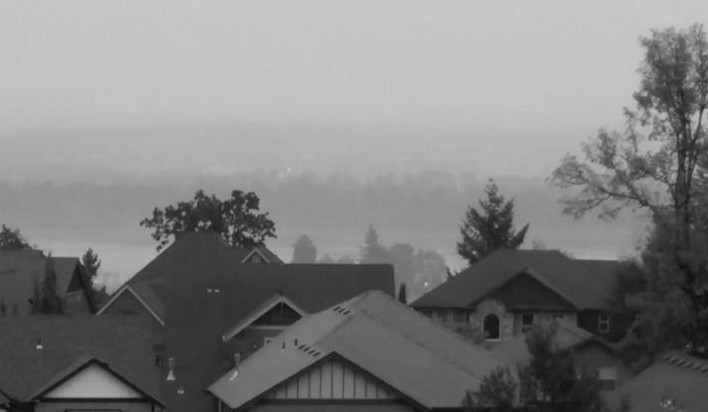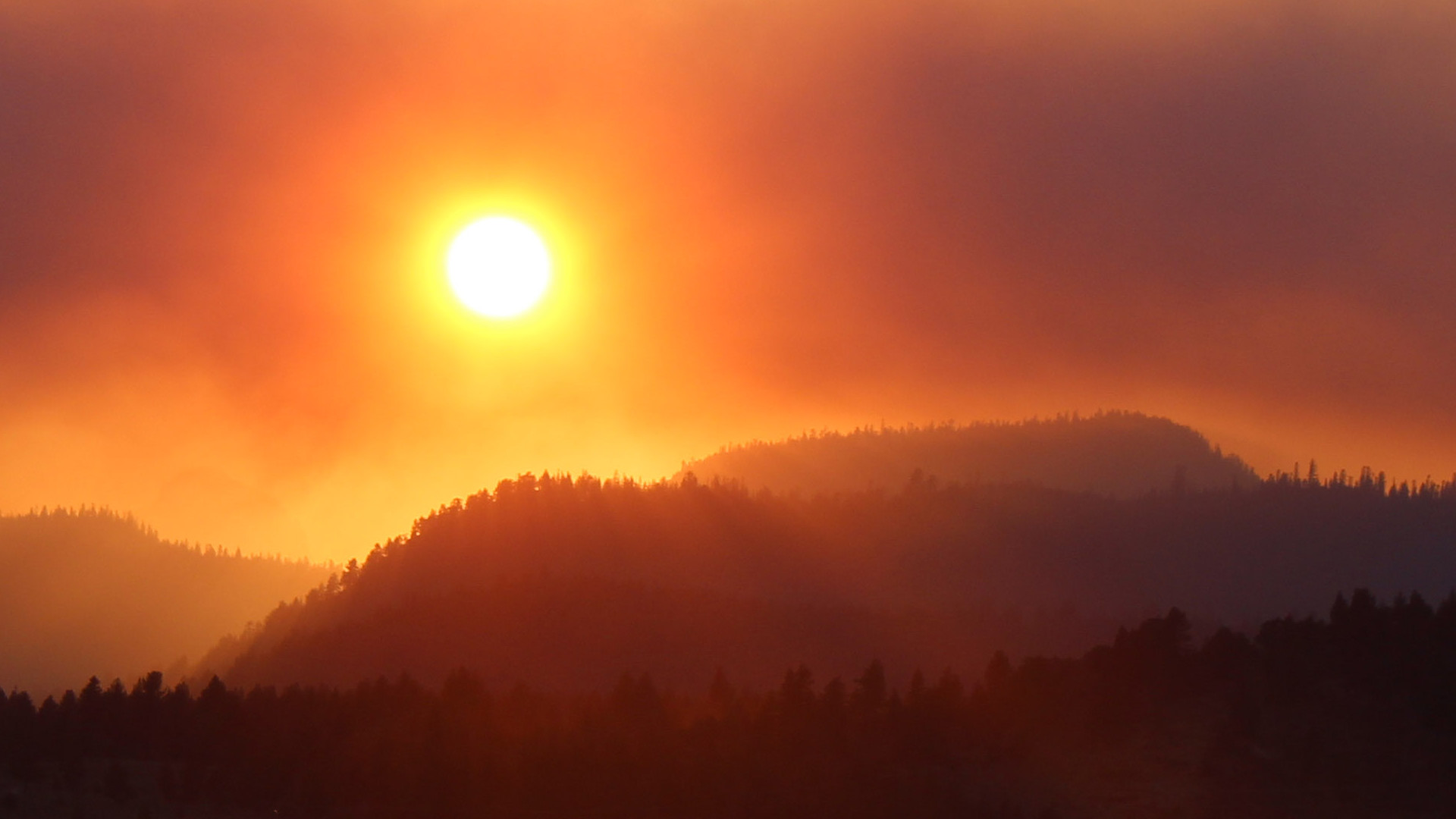The air in the Pacific Northwest this week is filled with smoke, ash and a sense of dread.
People tend to think of Portland, Oregon, as the land of perpetual rain, but in truth we’ve barely seen a drop of the wet stuff for months now. Instead the earth has gone dry, the grasses have gone dormant and the fires have had a field day. Last week nearly 1,000 wildfires burned in and around the state, leaving a haze in the atmosphere and a cough in many peoples’ lungs, mine included.
This week it is worse — much worse. A new fire, reportedly set off by kids throwing firecrackers, struck the Eagle Creek Trailhead in Oregon’s Columbia River Gorge on Saturday. By Tuesday the flames had spread to more than 10,000 acres; by this morning it was up to 20,000 acres. At my home just 25 miles away, ash from centuries-old trees drifted through the sky like snowflakes, coating everything not in white but in gray and charred brown. The smell of burning wood surrounded us yesterday, even seeping in through windows tightly closed against the concurrent heatwave and its nearly 100-degree weather.

Of course all of this pales in comparison to the fires still surrounding Los Angeles or the floods still strangling the Hurricane Harvey-ravaged Houston region and monsoon-struck Southeast Asia, where more than 1,200 people have died. And what comes next could become another crisis. Even as I struggle with the relatively minor discomfort of smoke and ash, all my friends in Florida and the Caribbean are battening down the hatches in anticipation of upcoming monster storm Hurricane Irma, which threatens to rip through their homes starting as early as today.
Meanwhile, all of this comes at a time when government programs to deal with floods and disaster relief — not to mention climate change — face slashing if not complete eradication through the machinations of the science-denying Trump administration.
Through it all, though, I refuse to give up hope. It’s not that I’m an optimist — far from it. I’m a realist with cynical overtones. I know how bad things are, and I know that in most ways they’re going to get worse over the next few years. But despair does not yet have me in its grip.
Where does my sense of hope come from? Honestly, it’s a function of my years of reporting on climate change, the extinction crisis, pollution and other horrifying topics. People ask me all the time, “How can you stand to write about this terrible stuff every day?” The answer is simple: Even when I’m reporting on the worst-case scenarios, I’m usually interviewing the very people who are working hard to understand what’s going on — or to try to turn these situations around. I see the work going on behind the scenes. I know that people are making a difference. I see the positive change, as painfully slow and incremental as it may be, and I embrace it.
The world is choking and burning and drowning. People are dying and species are going extinct. Politics make it all seem even bleaker. But I’ll never let any of that stop me, and it shouldn’t stop anyone else either. It should serve to motivate us to do better, and to encourage others to do the same.




The burning of centuries’-old trees is heartbreaking and maddening. And to think it was fireworks makes it even worse. I share your cautious optimism. Thank you for your dedication to the climate-change beat.
I’m somewhat cynical as well, considering how many flat-Earthers there are in leadership positions primarily in the United States. If the cataclysms of fires, hurricanes, drought and crop failures do not awaken people to the threat, I don’t know what will.
Canada’s oil sands, “mountain-top” removal of coal, the insistence of American consumers to continue buying gas-guzzling cars and trucks at a frenzied rate, fracking and the resultant pumping of poison back into the ground where it is sure to contaminate (and has) drinking water are some of the variables that make me think it will only be catastrophes — worse than we are currently experiencing — before people will truly realize the dire predicament we face in climate change.
The amount of climate refugees is just beginning. It will grow into a giant tsunami if the world does not act to truly address climate change. Enough with the photo ops of leaders shaking hands. All their climate agreements don’t go far enough.